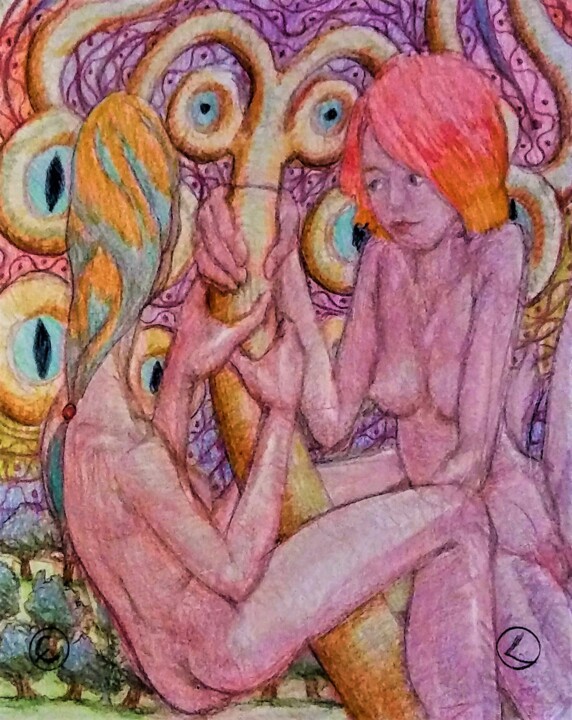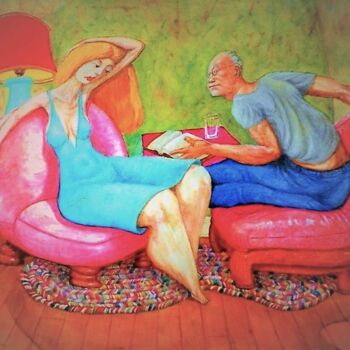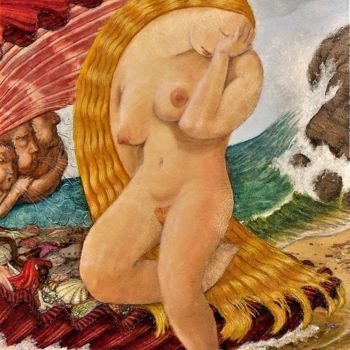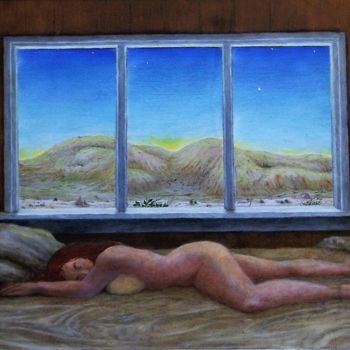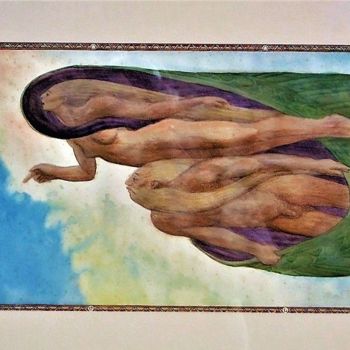Women Examine an Oddity (2022) Drawing by Edwin Loftus
More info
- Packaging (Envelope) All artworks are shipped with a premium carrier, carefully protected and insured.
- Tracking Order tracking until the parcel is delivered to the buyer. A tracking number will be provided so that you can follow the parcel in real-time.
- Delay Worldwide delivery in 3 to 7 days (Estimate)
More info
- Trackable Online Certificate of Authenticity Authenticity Certificates can be verified online at any moment by scanning the artwork code.
- Artist Value Certification Experts study the work and career of an artist then establish an independent and reliable average price value. The average price value situates the artist on a price range for a given period. The experts may also be asked to establish a more precise estimate for a particular work.
More info
100% secure payment with SSL certificate + 3D Secure.
More info
This image is available for download with a licence
Seller Edwin Loftus
-
Original Artwork (One Of A Kind)
Drawing,
Pastel
on Cardboard
- Dimensions Height 14in, Width 11in
- Artwork's condition The artwork is in perfect condition
- Framing This artwork is not framed
- Categories Drawings under $1,000 Symbolism Everyday Life
Operating from that interest, I looked at random squiggles on a piece of Bristol Board and they suggested these two figures examining this unusual thing, this "oddity." in my personal iconography nudity tends to suggest Nature or something natural to human experience. Women tend to suggest universal humanity, (and they are more fun to draw because of their odd curviness).
As a student of history and psychology ... I have observed times and places where humanity tended to have more or less realistic views about existence, (understanding that something so vast cannot be comprehended by something as simple as a human brain with its mere trillion or so neurons.
By and large, I'm not at all confident that there is such a thing as "general progress." There is progress on something specific, but most specific progress requires an approximately equal sacrifice. Progress tends to be balanced by regression in some other aspect of life.
It may seem odd to suggest that we today are no more "generally advanced" than our paleolithic ancestors, but one needs to calculate in not just the benefits of civilization but its deficits as well, not just its physical effects, but its psychological ones as well.
Fortunately for what's left of my credibility, (if anything is left), I do believe some progress has been made, just nowhere near as much as we think.
The easiest way to explain this is that for a million years our ancestors evolved to live short but relatively unconflicted lives as a part of the natural world. We didn't erase those million years of evolution in just 8 to 10,000 years of civilization. For every advancement civilization has made, there are things it cost us, things that may have made us happier.
We have made real progress. But to demonstrate that, we need to cite a specific example ... like learning to make and use fire, tools, the wheel, medicine and surgery, spoken and written language, agriculture and animal husbandry.
Each of us should decide for ourselves how successful progress has been.
But there's another way to look at this. In some ways we are more advanced than ever. But in some others, we are more unhappy than ever. And this is but one of the oddities we study.
Related themes
Edwin Loftus is an American painter and draftsman born in 1951. His interest in art began at the age of 4 when he decided to draw something real rather than working from his imagination.
As a child he excelled at drawing and as a teenager he began to experiment with oil painting. In college, he took courses in art and art history and realized that true art had nothing to do with the quality of the drawing or painting, but that it had to have the ambition to push the boundaries and expand the visual experience.
He also studied philosophy, psychology and history and quickly realized that it was just another art establishment trying to defend its elitist industry and reward system. Their skills were almost non-existent, they knew nothing about psychology, perception or stimulus response, and they were extensions of the belief system that made communism, fascism and other forms of totalitarianism such destructive forces in the world. They literally believe that art shouldn't be available to ordinary human beings, but only to an elite "sophisticated" enough to understand it.
Edwin Loftus realized that the emperors of art had no clothes, but they were still the emperors. Gifted in art, he worked hard to acquire this skill. So he found other ways to make a living and sold a few artworks from time to time. For sixty years, many people enjoyed his works and some collected them.
Today, Edwin Loftus is retired. Even if he sold all his paintings for the price he asked, "artist" would be the lowest paid job he ever had... but that's the way it is. It won't matter to him after he dies. He just hopes that some people will like what he does enough to enjoy it in the future.
-
Nationality:
UNITED STATES

- Date of birth : 1951
- Artistic domains: Works by artists with a certified artist value,
- Groups: Certified Artists Contemporary American Artists

